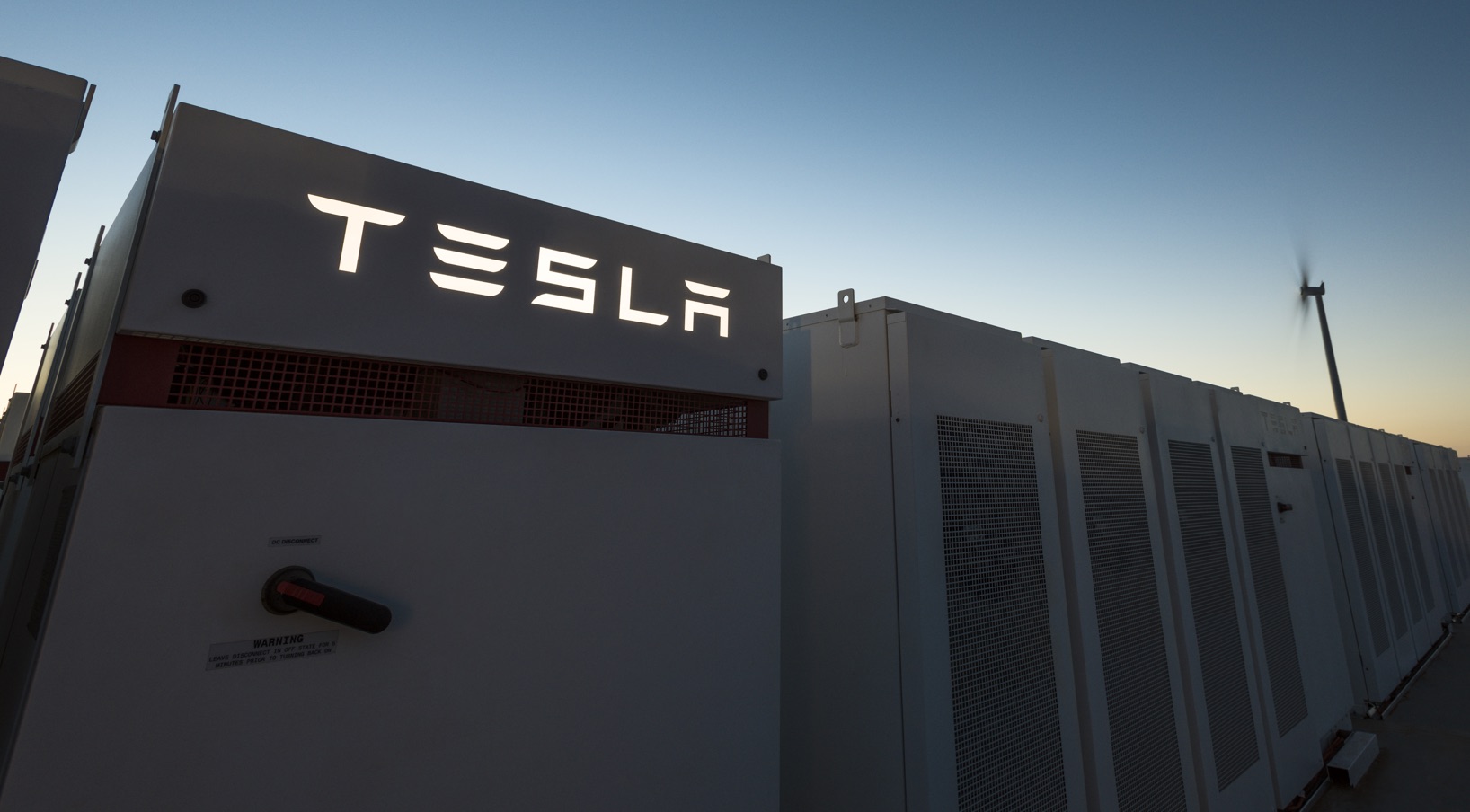
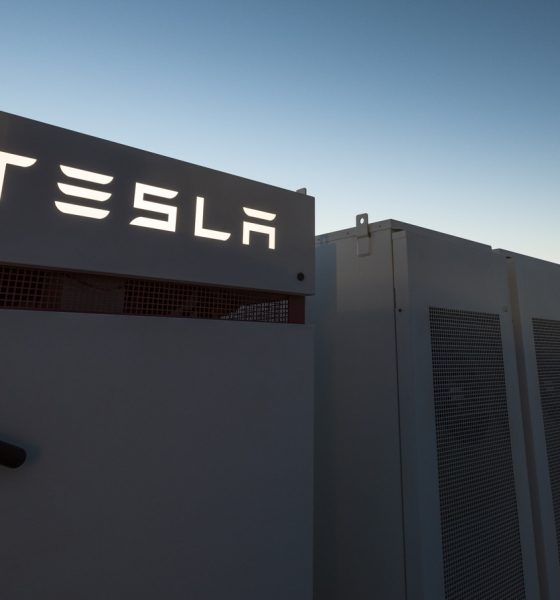
Energy
Tesla Energy tests the waters for possible expansion in Germany
Tesla is reportedly looking to expand its line of clean energy products into the German market.
The electric automaker and clean energy generation and storage company is considering an entrance into the German electricity sector with a tariff that would save owners money while utilizing at-home EV charging points. Additionally, Tesla is surveying potential customers in the country to determine whether joining the German energy sector would be a worthwhile project, PV Magazine reported.
During the Q2 2020 Earnings Call, Tesla reported that its energy business was ramping well with its Megapack generating a profit for the first time. Storage deployments also increased to 419 MWh, as both Powerwall and Megapack deployments increased.
Tesla’s Solar deployments also tripled in Q2 compared to Q1, and the average system is available for $1.49 per watt, which is around one-third less expensive than the industry average.
With that, Tesla has focused on getting its energy business thriving outside of the United States. In June, the company obtained an electricity generation license in the United Kingdom, paving the way for the company to establish a virtual power plant in the region and provide residents in England, Northern Ireland, Scotland, and Wales with sustainable energy solutions.
Now, the company is turning its sights on Germany, where it is currently building a vehicle production plant near Berlin.
Tesla is scouting the possibility for an expansive energy business in Germany by using a questionnaire to prospective customers that includes several questions about the possible infrastructure.
Customers who received the questionnaire were asked which energy products they would consider buying. The options include Home Energy Storage products, Solar Panels, Tesla Wall Connector for Electric Vehicles, Access to a Public EV Charging Network, and the supply of clean energy.
It also asks how customers would prefer to pay, depending on their usage. This question reportedly included the options of a day-ahead hourly-variable price per kWh. Tesla also asked in the survey what elements of EV charging would customers be willing to surrender to the company to improve energy usage. The question brings up speculation that grid balancing benefits that would prevent energy-wasting and enhance the cost-effectiveness of the energy system across the board.
Finally, Tesla included Grid ancillary service questions in the poll.
“Suppose your car is charged every morning to meet your daily needs. Under what conditions would you allow Tesla to control the charging time of your car so that it is charged for your daily needs and to offer you a cheaper electricity tariff?”
Possible answers included, “If there is a clear financial advantage for me,” “If there are other advantages such as free or cheaper charging at home or no public charging stations,” and “If it helps to increase the share of renewable energies in the energy mix.”
Tesla’s ultimate decision on whether the energy side should expand to Germany will ultimately come down to customer interest in the country’s market. Tesla will be competing with Greenpeace Energy, EWS Schönau, Lichtblick, Polarstern, E.ON, and others if the company decides to join the market.

Energy
Tesla Powerwall distribution expands in Australia
Inventory is expected to arrive in late February and official sales are expected to start mid-March 2026.
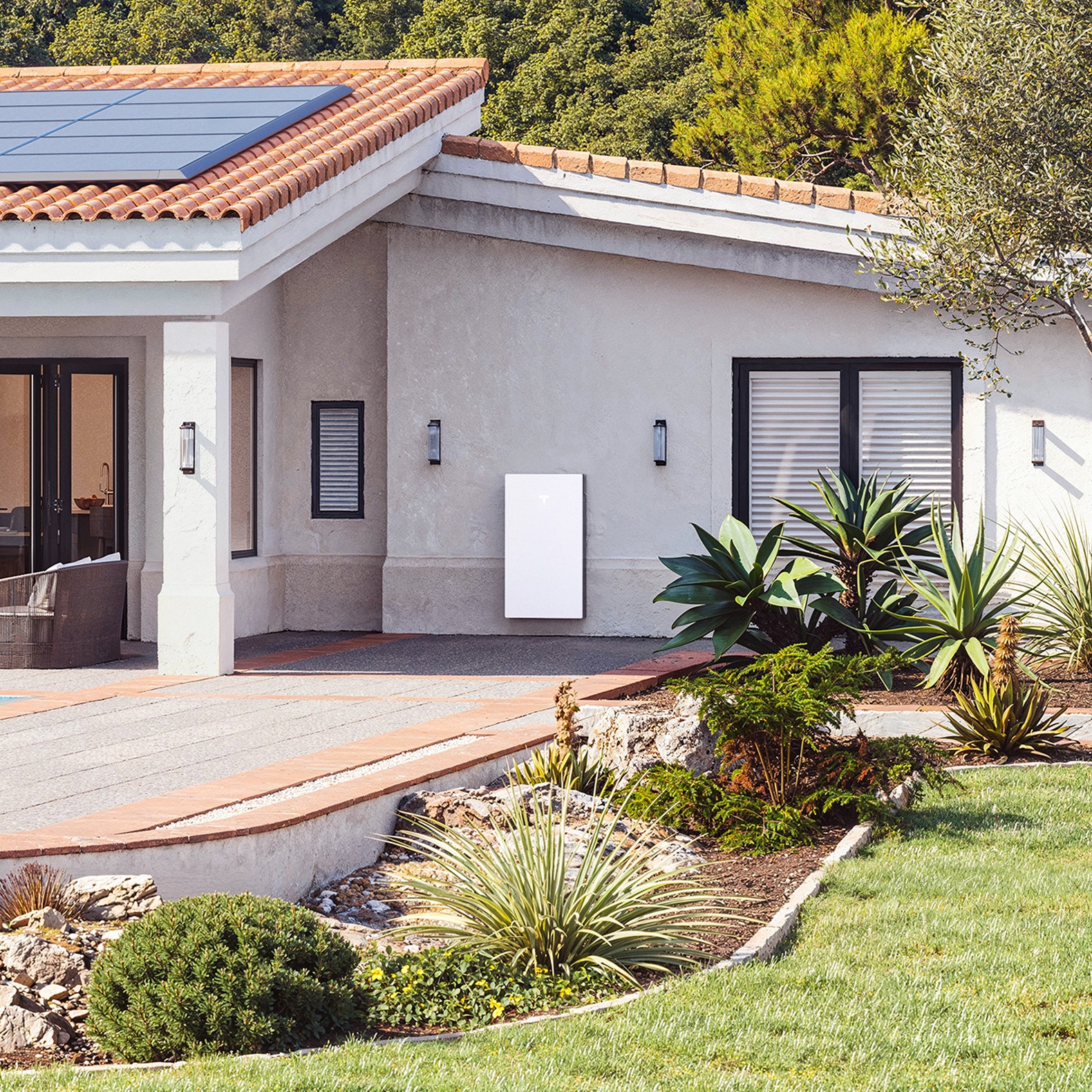
Supply Partners Group has secured a distribution agreement for the Tesla Powerwall in Australia, with inventory expected to arrive in late February and official sales beginning in mid-March 2026.
Under the new agreement, Supply Partners will distribute Tesla Powerwall units and related accessories across its national footprint, as noted in an ecogeneration report. The company said the addition strengthens its position as a distributor focused on premium, established brands.
“We are proud to officially welcome Tesla Powerwall into the Supply Partners portfolio,” Lliam Ricketts, Co-Founder and Director of Innovation at Supply Partners Group, stated.
“Tesla sets a high bar, and we’ve worked hard to earn the opportunity to represent a brand that customers actively ask for. This partnership reflects the strength of our logistics, technical services and customer experience, and it’s a win for installers who want premium options they can trust.”
Supply Partners noted that initial Tesla Powerwall stock will be warehoused locally before full commercial rollout in March. The distributor stated that the timing aligns with renewed growth momentum for the Powerwall, supported by competitive installer pricing, consumer rebates, and continued product and software updates.
“Powerwall is already a category-defining product, and what’s ahead makes it even more compelling,” Ricketts stated. “As pricing sharpens and capability expands, we see a clear runway for installers to confidently spec Powerwall for premium residential installs, backed by Supply Partners’ national distribution footprint and service model.”
Supply Partners noted that a joint go-to-market launch is planned, including Tesla-led training for its sales and technical teams to support installers during the home battery system’s domestic rollout.
Energy
Tesla Megapack Megafactory in Texas advances with major property sale
Stream Realty Partners announced the sale of Buildings 9 and 10 at the Empire West industrial park, which total 1,655,523 square feet.
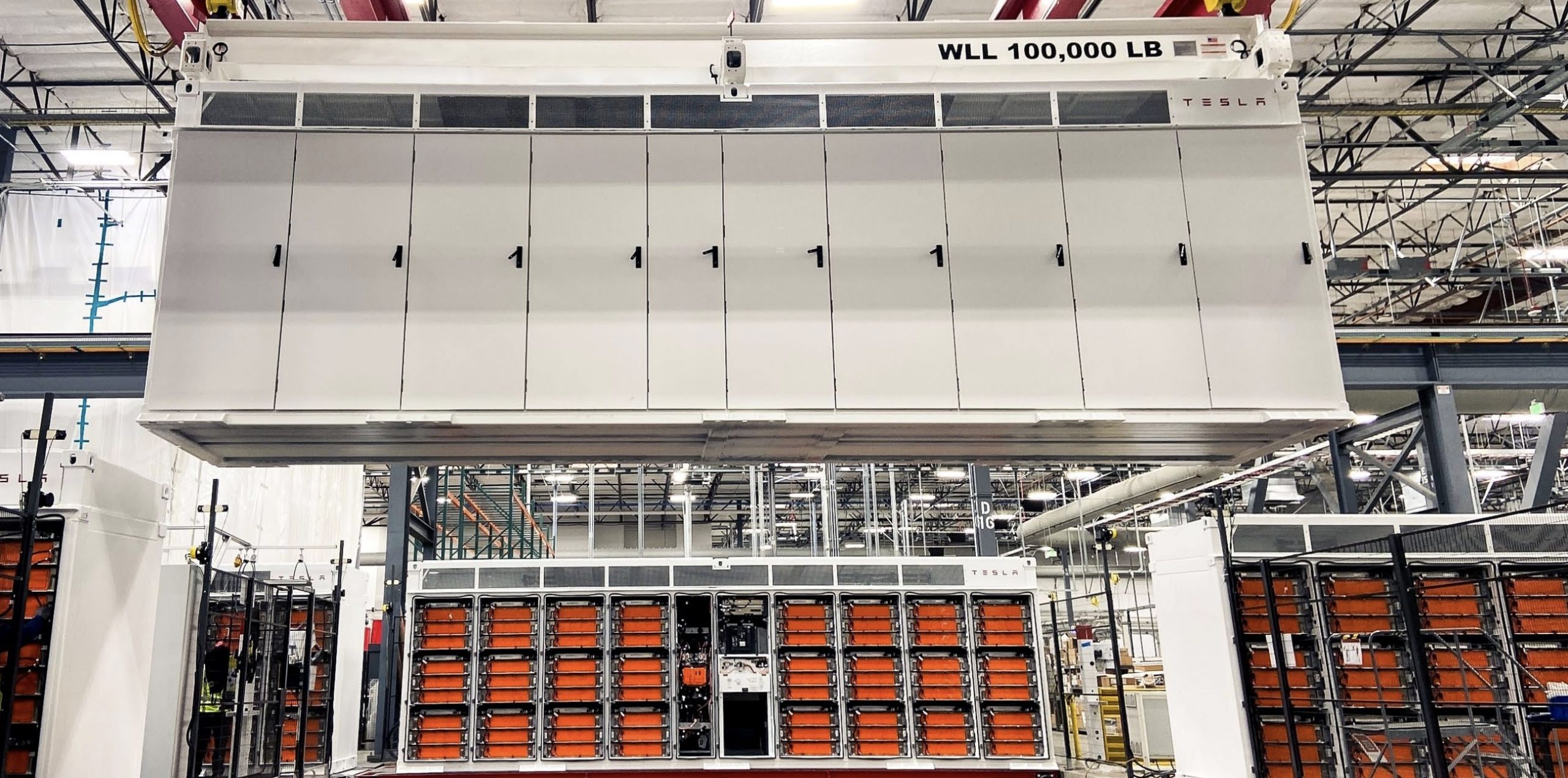
Tesla’s planned Megapack factory in Brookshire, Texas has taken a significant step forward, as two massive industrial buildings fully leased to the company were sold to an institutional investor.
In a press release, Stream Realty Partners announced the sale of Buildings 9 and 10 at the Empire West industrial park, which total 1,655,523 square feet. The properties are 100% leased to Tesla under a long-term agreement and were acquired by BGO on behalf of an institutional investor.
The two facilities, located at 100 Empire Boulevard in Brookshire, Texas, will serve as Tesla’s new Megafactory dedicated to manufacturing Megapack battery systems.
According to local filings previously reported, Tesla plans to invest nearly $200 million into the site. The investment includes approximately $44 million in facility upgrades such as electrical, utility, and HVAC improvements, along with roughly $150 million in manufacturing equipment.
Building 9, spanning roughly 1 million square feet, will function as the primary manufacturing floor where Megapacks are assembled. Building 10, covering approximately 600,000 square feet, will be dedicated to warehousing and logistics operations, supporting storage and distribution of completed battery systems.
Waller County Commissioners have approved a 10-year tax abatement agreement with Tesla, offering up to a 60% property-tax reduction if the company meets hiring and investment targets. Tesla has committed to employing at least 375 people by the end of 2026, increasing to 1,500 by the end of 2028, as noted in an Austin County News Online report.
The Brookshire Megafactory will complement Tesla’s Lathrop Megafactory in California and expand U.S. production capacity for the utility-scale energy storage unit. Megapacks are designed to support grid stabilization and renewable-energy integration, a segment that has become one of Tesla’s fastest-growing businesses.
Energy
Tesla meets Giga New York’s Buffalo job target amid political pressures
Giga New York reported more than 3,460 statewide jobs at the end of 2025, meeting the benchmark tied to its dollar-a-year lease.
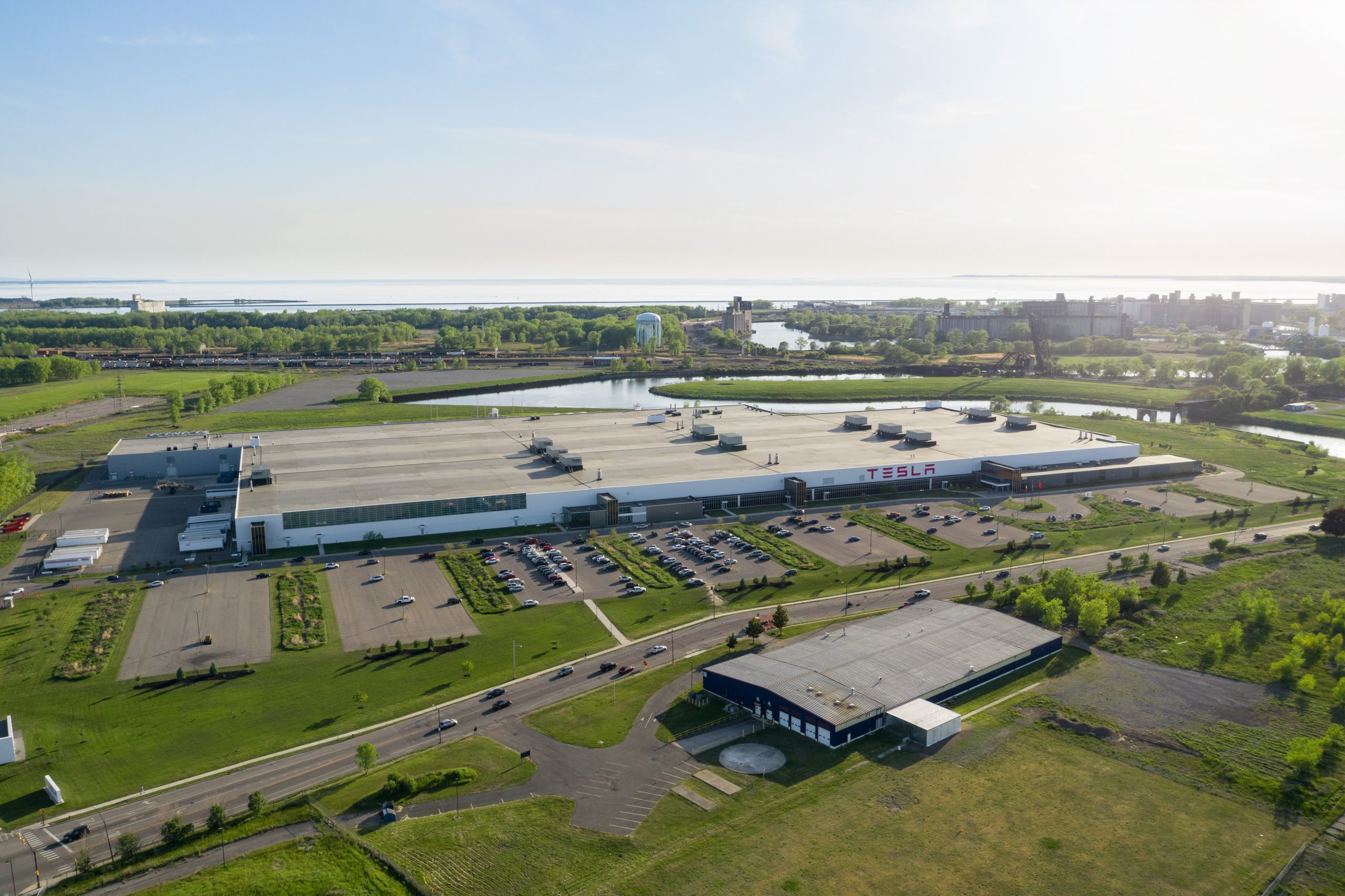
Tesla has surpassed its job commitments at Giga New York in Buffalo, easing pressure from lawmakers who threatened the company with fines, subsidy clawbacks, and dealership license revocations last year.
The company reported more than 3,460 statewide jobs at the end of 2025, meeting the benchmark tied to its dollar-a-year lease at the state-built facility.
As per an employment report reviewed by local media, Tesla employed 2,399 full-time workers at Gigafactory New York and 1,060 additional employees across the state at the end of 2025. Part-time roles pushed the total headcount of Tesla’s New York staff above the 3,460-job target.
The gains stemmed in part from a new Long Island service center, a Buffalo warehouse, and additional showrooms in White Plains and Staten Island. Tesla also said it has invested $350 million in supercomputing infrastructure at the site and has begun manufacturing solar panels.
Empire State Development CEO Hope Knight said the agency was “very happy” with Giga New York’s progress, as noted in a WXXI report. The current lease runs through 2029, and negotiations over updated terms have included potential adjustments to job requirements and future rent payments.
Some lawmakers remain skeptical, however. Assemblymember Pat Burke questioned whether the reported job figures have been fully verified. State Sen. Patricia Fahy has also continued to sponsor legislation that would revoke Tesla’s company-owned dealership licenses in New York. John Kaehny of Reinvent Albany has argued that the project has not delivered the manufacturing impact originally promised as well.
Knight, for her part, maintained that Empire State Development has been making the best of a difficult situation.
“(Empire State Development) has tried to make the best of a very difficult situation. There hasn’t been another use that has come forward that would replace this one, and so to the extent that we’re in this place, the fact that 2,000 families at (Giga New York) are being supported through the activity of this employer. It’s the best that we can have happen,” the CEO noted.








